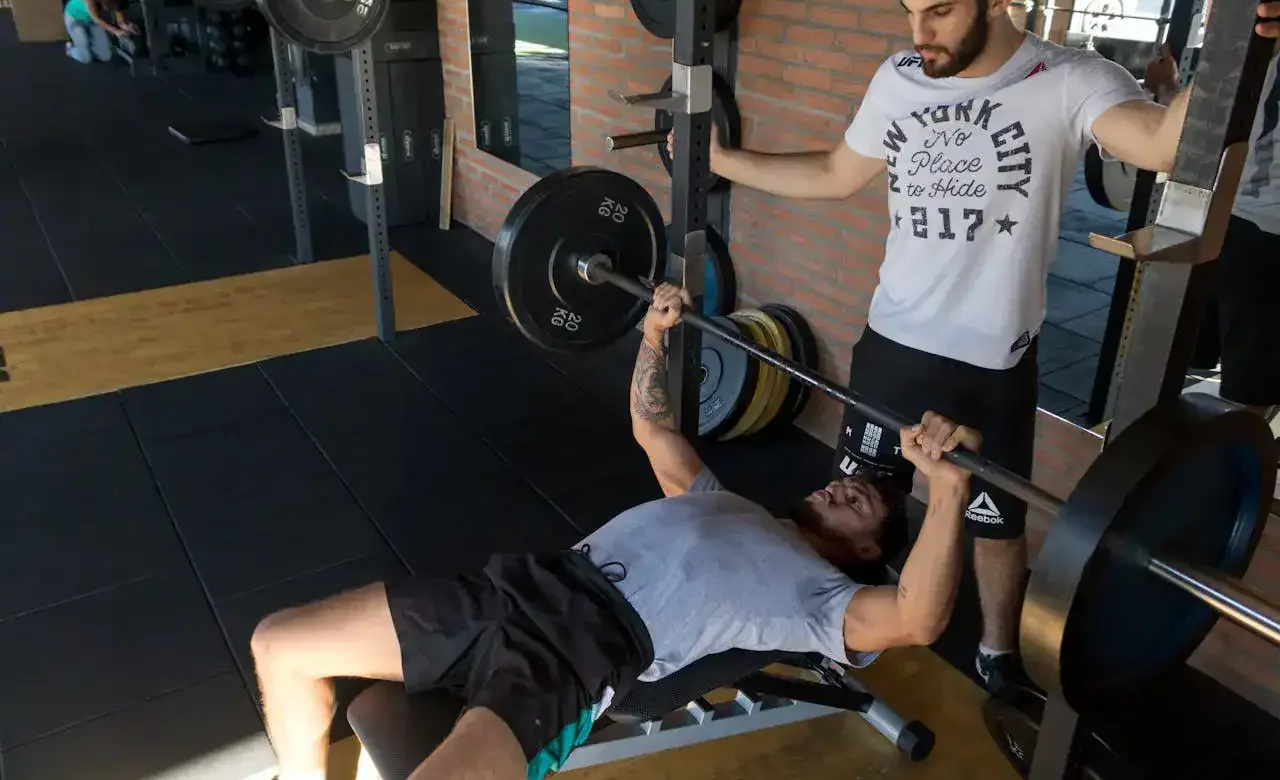Questions to Ask When Choosing a Personal Trainer

Table of Contents
The Rising Trend of Personal Training Services
- Health Awareness: With increasing awareness about the importance of physical fitness in maintaining overall health and preventing chronic diseases, more people are seeking professional guidance to achieve their fitness goals.
- Personalization: Personal trainers tailor workouts and nutrition plans to suit individual goals, needs, and preferences, leading to more effective and efficient results.
- Accountability: Having a personal trainer provides accountability, motivation, and support, which can be crucial for individuals who struggle to stay consistent with their exercise routines on their own.
- Expert Guidance: Personal trainers possess the knowledge and expertise to guide clients through proper form and technique, reducing the risk of injury and promoting long-term success.
- Flexibility: With the advent of technology and virtual training, personal training services have become more accessible and flexible, allowing clients to train anywhere, anytime. Many personal trainers offer flexible scheduling and the option to train either in-person or remotely, making it easier for clients to fit workouts into their busy lifestyles.
- Holistic Approach: Personal trainers often incorporate a holistic approach to health and wellness, addressing various aspects of a client’s life, such as sleep, stress management, and nutrition, to promote overall well-being.
- Social Connection: Working with a personal trainer can also provide a sense of social connection and community, as clients often develop strong relationships with their trainers and fellow gym-goers.
- Specialized Expertise: Personal trainers often have specialized knowledge in various areas such as strength training, weight loss, injury rehabilitation, sports-specific training, and nutrition. This expertise allows them to provide targeted guidance and support to clients.
Why You Can't Just Pick the First Personal Trainer You Find
Selecting the right personal trainer is crucial for achieving your fitness goals, and simply picking the first trainer you find might not be the best approach for several reasons:
- Compatibility: Not every trainer will be compatible with your personality, learning style, or preferences. It’s essential to find someone you feel comfortable with and who understands your needs. Building a rapport and feeling comfortable with your trainer can greatly enhance your overall experience and results.
- Experience and Qualifications: Trainers possess varying levels of experience and qualifications. By thoroughly researching and comparing trainers, you can ensure you choose one with the necessary expertise to help you achieve your goals safely and effectively. Simply choosing the first trainer you come across without considering their credentials and track record could potentially lead to subpar results or even injuries.
- Specialization: Some trainers specialize in specific areas, such as weight loss, strength training, or sports-specific conditioning. Selecting a trainer who specializes in your area of interest will yield better results. Depending on your goals, you might need a trainer who specializes in strength training, weight loss, sports-specific training, injury rehabilitation, or other areas. Taking the time to research and find a trainer with the right expertise for your needs can significantly impact the effectiveness of your workouts.
- Training Style: Each trainer has a unique training style, and finding one that aligns with your preferences and goals will make the process more enjoyable and effective. Some trainers might prefer HIIT type workouts, while other prefer separate strength and cardio workouts. So make sure what the trainer offers aligns with your expectations.
- Availability and Location: Consider the trainer’s availability and location to ensure their schedule and training environment fit your needs and preferences. The first trainer you find may not necessarily have availability that fits your schedule or location preferences. Taking the time to explore different options allows you to find a trainer who can accommodate your schedule and location, making it easier to commit to your workouts consistently.
- Cost: Personal training services can vary significantly in cost. Comparing rates and packages will help you find a trainer who fits your budget.
- Fit for Your Goals: Your fitness goals may require a specific approach or training methodology. A trainer who is experienced in helping clients achieve similar goals can provide more targeted guidance and support compared to a trainer with a different focus.
Overall, while it might be tempting to choose the first trainer you find for the sake of convenience, taking the time to research and consider your options can lead to a more successful and fulfilling personal training experience in the long run.
The Steps You Can Take to Select the Right Personal Trainer
Selecting the right personal trainer is crucial for achieving your fitness goals and ensuring an enjoyable and productive experience. Here are some steps to help you find the perfect fit:
- Define Your Goals: Determine what you want to achieve through personal training. Whether you want to lose weight, build muscle, improve endurance, or train for a specific event, having clarity about your objectives will help you find a trainer with the right expertise and approach.
- Research Trainers: Look for personal trainers with a strong reputation, positive client reviews, and appropriate certifications and experience. Online platforms, local gyms, and fitness studios can be great resources for finding potential trainers.
- Check Specializations: Consider trainers who specialize in your area of interest, as they will have the expertise to help you achieve your specific goals. Inquire about the trainer’s experience working with clients who have similar goals or health conditions as you. Ask about their specialization and whether they have experience in areas such as strength training, weight loss, sports-specific training, injury rehabilitation, or nutrition coaching.
- Schedule Consultations: Meet with potential trainers to discuss your goals, assess their communication style, and determine if you feel comfortable working with them. Many trainers offer free introductory sessions or consultations.
- Compare Costs and Availability: Factor in session costs and the trainer’s availability to ensure it aligns with your budget and schedule.
- Assess Training Style: Consider the trainer’s approach to exercise programming and motivation, and ensure it aligns with your preferences and needs. Ask about their methods for designing workout programs, tracking progress, and adjusting routines based on your feedback and results.
- Trust Your Gut: Ultimately, trust your instincts and choose a trainer who you feel comfortable with and who you believe will help you achieve your goals. Ultimately, trust your instincts when selecting a trainer. If something doesn’t feel right or if you have reservations about a particular trainer, it’s okay to explore other options until you find the right fit for you.
- Consider Availability and Logistics: Determine whether the trainer’s availability matches your schedule and location preferences. Discuss logistical details such as session frequency, duration, location (in-person or online), and fees to ensure that they align with your needs and budget.
What You'll Learn During Your First Initial Training Session
- Goal Setting: Your trainer will discuss your fitness expectations and goals, both short-term and long-term, helping you set realistic and achievable targets for your training. This discussion helps your trainer understand what you want to achieve and tailor the training program accordingly.
- Fitness Assessment: The trainer may conduct a fitness assessment to evaluate your current level of fitness, strength, and flexibility. This assessment may include body measurements, strength tests, and a discussion of your health history. This assessment provides a baseline from which to track progress and customize your workout plan.
- Movement Screening: Your trainer may assess your movement patterns and mobility through various exercises and functional movements. This screening helps identify any muscle imbalances, weaknesses, or areas of tightness that may need to be addressed in your training program.
- Program Design: Based on your goals and assessment results, your trainer will develop a customized workout program tailored to your specific needs and preferences. You’ll have the opportunity to discuss your exercise preferences, previous workout experiences, and any activities you enjoy or dislike.
- Exercise Instruction: During the session, your trainer will demonstrate and teach you how to perform each exercise with proper form and technique to ensure you’re exercising safely and effectively.
- Establishing Baseline Measurements and Goals: Based on the assessments and discussions, your trainer will help you establish baseline measurements and realistic, achievable goals for your fitness journey. These goals may include specific targets for weight loss, strength gains, endurance improvement, or other outcomes.
- Workout Session: You’ll likely engage in a full workout session, incorporating the exercises and techniques you’ve learned under the guidance and supervision of your trainer.
- Nutrition Guidance: Some trainers may also provide basic nutrition advice and guidance to support your fitness goals and overall health and lifestyle that complement your fitness goals. While they may not provide detailed meal plans or nutritional counseling (unless they are also certified nutritionists), they can offer tips and suggestions to support your overall health and fitness efforts.
Setting Expectations: Finally, your trainer will set expectations for future training sessions, including frequency, duration, and any homework or additional activities they may recommend between sessions to support your progress.
Overall, the first initial training session serves as a foundation for building a successful trainer-client relationship, establishing clear goals and expectations, and designing a personalized training program tailored to your needs and preferences.
Your Personal Fitness Advocate
I hope you found this information helpful. Check out my other related posts such as the benefits of online personal trainer, and the difference between ballistic and plyometric exercises. We also recorded a related podcast on injuries and prevention.




